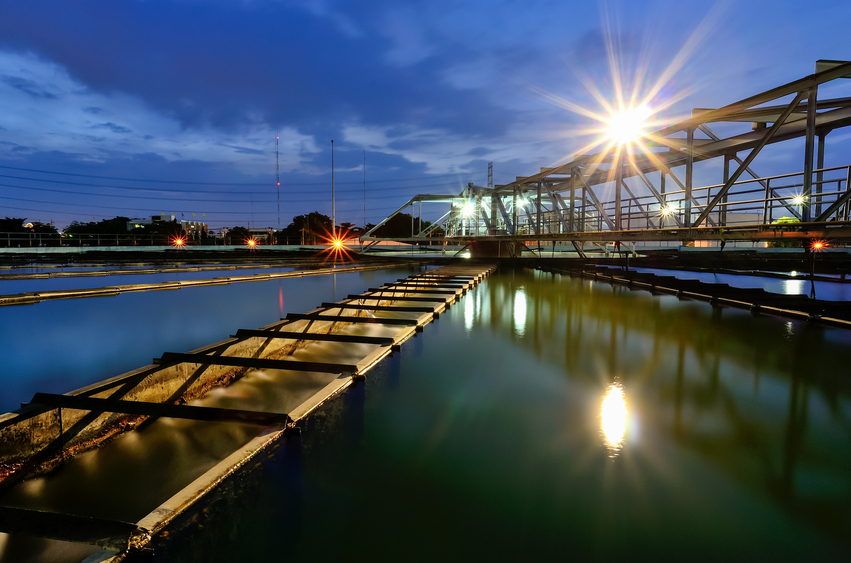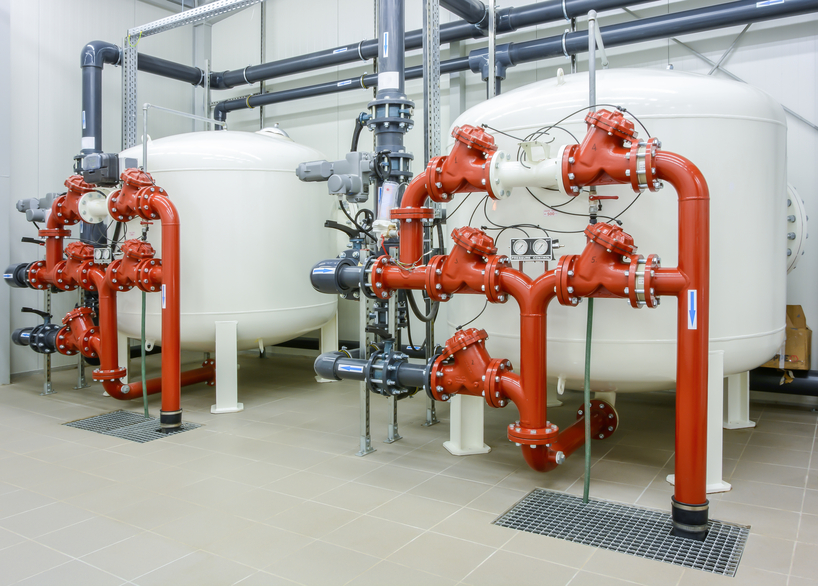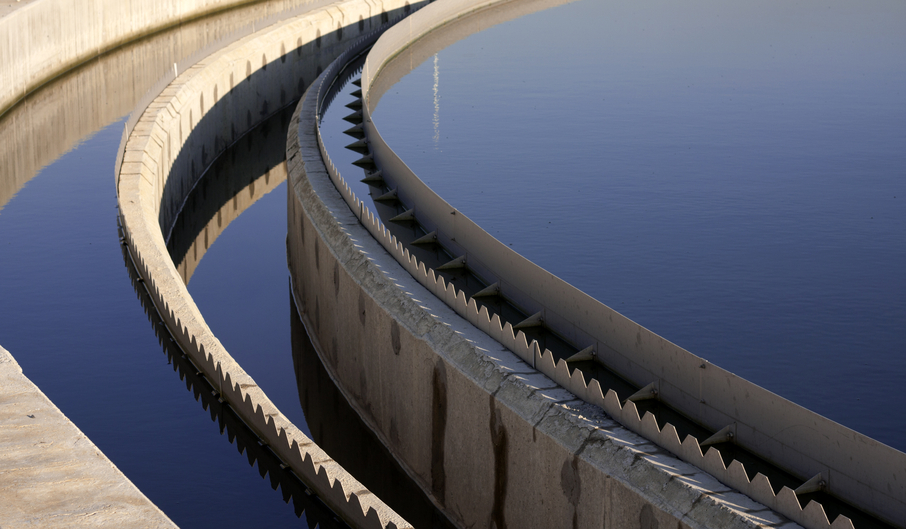Illinois Wastewater and Laws/Rules/Ethics/Sexual Harassment 30 PDH Discount Package 1
Wastewater Treatment System Performance Requirements (C08-003)
Local Government Climate and Energy Strategy: Energy Efficiency in Water and Wastewater Facilities (R04-006)
Water Treatment and Purification (H05-004)
Pressure and Gravity Sewers (C02-068)
Sexual Harassment Prevention for Illinois Professionals (IL1-002)
Engineering Laws, Rules, and Ethics for Illinois Professional Engineers (IL2-001)

This online engineering PDH course provides a discussion and detailed examples of process design calculations for a single stage BOD removal MBBR (moving bed biofilm reactor) system, a two-stage BOD removal MBBR system, a single stage tertiary nitrification MBBR system, a two-stage BOD removal/Nitrification MBBR system a post-anoxic denitrification MBBR system and a pre-anoxic denitrification MBBR system.
This course is Part II of a three-part series. The other two courses in this Biological Wastewater Treatment series are about activated sludge processes (Part I) and Membrane Biofilm Reactor (MBR) processes (Part III).
The MBBR process is an attached growth process that uses plastic carriers to provide a surface on which biofilm grows. The MBBR process doesn’t require sludge recycle, because the biomass remains in the system attached to the plastic carriers. The required reactor size for an MBBR process is typically significantly smaller than that for an activated sludge process treating the same wastewater flow, or for other common attached growth processes like the RBC or trickling filter. It can be used for BOD removal, biological nitrification, biological denitrification, and biological phosphorus removal.
This 4 PDH online course is intended primarily for civil engineers, environmental engineers, and chemical engineers. After completing this course you will be familiar with the general components and configuration of an MBBR wastewater treatment process and be able to make typical process design calculations for an MBBR process.
This PE continuing education course is intended to provide you with the following specific knowledge and skills:
- Understanding the differences between attached growth and suspended growth biological wastewater treatment processes
- Familiarizing with the components of and the general configuration of an MBBR wastewater treatment process
- Calculating the loading rate of a wastewater constituent to an MBBR process (in lb/day and g/day) for a specified wastewater flow rate and constituent concentration
- Calculating the required carrier surface area for an MBBR wastewater treatment process for a specified SALR and loading rate.
- Calculating the required MBBR tank volume for specified carrier surface area, carrier specific surface area and carrier fill %
- Calculating the liquid volume in an MBBR tank for known tank volume, carrier volume and carrier % void space
- Calculating the BOD, NH3-N, or NO3-N removal rate for known values of the surface area removal rate (SARR) and design carrier surface area
- Calculating an estimated effluent BOD, NH3-N or NO3-N concentration based on known values of the appropriate loading rate, estimated removal rate, and design wastewater flow rate
- Learning how to make process design calculations for a post-Anoxic denitrification MBBR process, including required tank sizes, estimated effluent concentrations, alkalinity requirement and carbon source requirement
- Learning how to make process design calculations for a pre-Anoxic denitrification MBBR process, including required tank sizes, estimated effluent concentrations, alkalinity requirements
MBBR BOD Removal Nitrification_US units (395 KB)
MBBR Nitrification-Denitrification-U.S (213 KB)
Upon successful completion of the quiz, print your Certificate of Completion instantly. (Note: if you are paying by check or money order, you will be able to print it after we receive your payment.) For your convenience, we will also email it to you. Please note that you can log in to your account at any time to access and print your Certificate of Completion.

This online engineering PDH course outlines essential steps for characterizing wastewater flow and composition and provides a framework for establishing and measuring performance requirements. It also describes methods for establishing and ensuring compliance with wastewater treatment performance requirements that protect human health, surface waters, and ground water resources. Furthermore, it describes the characteristics of typical domestic and commercial wastewaters and discusses approaches for estimating wastewater quantity and quality for residential dwellings and commercial establishments.
In addition, this course identifies the pollutants of concern in wastewaters and discusses the fate and transport of these pollutants in the receiving environment. It also presents the various technical approaches for establishing performance requirements for onsite systems, based on risk and environmental sensitivity assessments. Finally, it discusses performance monitoring to ensure sustained protection of public health and water resources.
This 8 PDH online course is applicable to civil, and environmental engineers, as well as design and construction personnel involved with the planning, selection and design of subsurface wastewater infiltration systems.
This PE continuing education course is intended to provide you with the following specific knowledge and skills:
- Estimating wastewater characteristics
- Estimating wastewater flow
- Understanding wastewater quality
- Minimizing wastewater flows and pollutants
- Integrating wastewater characterization and other design information
- Determining the transport and fate of wastewater pollutants in the receiving environment
- Establishing performance requirements
In this professional engineering CEU course, you need to review Chapter 3 of the USEPA Onsite Wastewater Treatment Systems Manual, EPA/625/R-00/008, "Establishing Treatment System Performance Requirements".
Upon successful completion of the quiz, print your Certificate of Completion instantly. (Note: if you are paying by check or money order, you will be able to print it after we receive your payment.) For your convenience, we will also email it to you. Please note that you can log in to your account at any time to access and print your Certificate of Completion.

This online engineering PDH course describes how local governments can improve the energy efficiency of their water and wastewater facilities. The course focuses primarily on three strategies: 1) equipment upgrades, 2) operational modifications, and 3) modifications to facility buildings.
In addition, policy mechanisms that some local governments have used to support energy efficiency programs in their operations are described. Investment and financing opportunities, including federal, state, and other programs that may be able to help water and wastewater facilities with information or financial and technical assistance, are presented.
The course presents two case studies of water or wastewater facilities that have successfully improved energy efficiency in their operations. Additional examples of successful implementation are provided throughout this course.
This 4 PDH online course is intended for civil, electrical, environmental, mechanical, and municipal engineers concerned with reducing the environmental impact of their local government through the introduction of sustainable technologies.
This PE continuing education course is intended to provide you with the following specific knowledge and skills:
- Establishing the facility's energy policy and overall energy improvement goals
- Assessing current energy baseline status
- Identifying energy objectives and targets
- Upgrading equipment such as pumps and blowers
- Modifying operating practices such as reducing the amount of energy required to perform specific tasks
- Modifying the facility such as installing efficient lighting, heating and cooling equipment
- Maintaining the energy improvement program
- Learning with case studies
In this professional engineering CEU course, you need to review the course document titled, “Local Government Climate and Energy Strategy: Energy Efficiency in Water and Wastewater Facilities” which is based on the Environmental Protection Agency document, “Energy Efficiency in Water and Wastewater Facilities, A Guide to Developing and Implementing Greenhouse Gas Reduction Programs”, from the EPA’s Local Government Climate and Energy Strategy Series, 2013.
Once you complete your course review, you need to take a multiple-choice quiz consisting of twenty (20) questions to earn 4 PDH credits. The quiz will be based on this EPA publication.
Upon successful completion of the quiz, print your Certificate of Completion instantly. (Note: if you are paying by check or money order, you will be able to print it after we receive your payment.) For your convenience, we will also email it to you. Please note that you can log in to your account at any time to access and print your Certificate of Completion.

This online engineering PDH course provides an overview of water treatment and purification.
Water is the most important substance on earth. As an engineer, you might be responsible for ensuring that an adequate supply of safe water is available for domestic, fire protection, and other uses. In meeting this responsibility, you must consider several factors, such as water source selection, ways to develop the water source, contaminants you may encounter, and methods you can use to remove them.
In this course, we will discuss the selection of a good water source, how to test it, and how to treat it so that it is safe for consumption. We will also explore ways to detect and treat water that has been contaminated with chemical, biological, or radiological agents. Lastly, we will talk about the different types of water treatment equipment and their processes.
This 5 PDH online course is applicable to chemical, civil, mechanical and environmental engineers and other professionals who are interested in gaining a better understanding of water treatment and purification processes.
This PE continuing education course is intended to provide you with the following specific knowledge and skills:
- Familiarizing with the requirements for water source selection
- Learning about the development criteria for water sources
- Understanding the results and testing procedures for water contamination
- Gaining an overview of the different types of water treatment equipment
Upon successful completion of the quiz, print your Certificate of Completion instantly. (Note: if you are paying by check or money order, you will be able to print it after we receive your payment.) For your convenience, we will also email it to you. Please note that you can log in to your account at any time to access and print your Certificate of Completion.

This online engineering courses is divided in to two parts: The first part discusses sewer systems that use pressure to deliver sewage to a treatment system. The second part discusses small diameter gravity sewers (SDGS) which convey effluent by gravity from a tank to a treatment location. Each part presents an overall description of the relevant topic along with the advantages and disadvantages of each system, design criteria, performance data, operation and maintenance and insights about cost related data.
Alternative wastewater collection systems can be cost effective for homes in areas where traditional collection systems are too expensive to install and operate. Pressure and gravity sewers are used in sparsely populated or suburban areas in which conventional collection systems would be expensive. These systems generally use smaller diameter pipes with a slight slope or follow the surface contour of the land; thereby, reducing excavation and construction costs. These systems convey effluent by gravity from an interceptor tank (or septic tank) to a centralized treatment location or pump station for transfer to another collection system or treatment facility.
This 2 PDH online course is applicable to civil, mechanical and environmental engineers, as well as design and construction personnel involved with the planning, design and installation of low pressure and small diameter gravity sewer systems.
This PE continuing education course is intended to provide you with the following specific knowledge and skills:
- Learning about the common types of alternative wastewater collection systems
- Understanding the advantages and disadvantages of each type of system
- Understanding the applicability of each system
- Familiarizing with the design criteria, performance data and operation and maintenance processes of each system
- Ability to compare conventional wastewater collection systems to alternative wastewater systems
Upon successful completion of the quiz, print your Certificate of Completion instantly. (Note: if you are paying by check or money order, you will be able to print it after we receive your payment.) For your convenience, we will also email it to you. Please note that you can log in to your account at any time to access and print your Certificate of Completion.

This online engineering PDH course presents a training on sexual harassment prevention to adopt and actively implement policies that ensure that workplaces are safe for employees to report and express their concerns about sexual harassment.
The Illinois Human Rights Act makes it a civil rights violation “[f]or any employer, employee, agent of any employer, employment agency or labor organization to engage in sexual harassment.” 775 ILCS 5/2-102(D).
The Illinois General Assembly finds that tolerance of sexual harassment has a detrimental influence in workplaces by creating a hostile environment for employees, reducing productivity, and increasing legal liability. Therefore, every employer in the State of Illinois is required to provide employees with sexual harassment prevention training that complies with section 2-109 of the Illinois Human Rights Act (“IHRA”).
This 1 PDH online course is applicable to professionals licensed in the State of Illinois and who are required to demonstrate continuing professional competency in sexual harassment prevention training as a condition of their license renewal.
This PE continuing education course is intended to provide you with the following specific knowledge and skills:
- Gaining an overview of sexual harassment prevention consistent with the Illinois Human Rights Act
- Familiarizing with types of unlawful sexual harassment, unwelcome behavior and working environment
- Learning about examples of conduct that may constitute unlawful sexual harassment
- Understanding sexual harassment in online environments
- Understanding employer responsibilities in the prevention, investigation, and corrective measures on sexual harassment
- Familiarizing with the Federal and State statutory laws concerning sexual harassment including remedies available to victims
- Exploring different workplace sexual harassment scenarios
Upon successful completion of the quiz, print your Certificate of Completion instantly. (Note: if you are paying by check or money order, you will be able to print it after we receive your payment.) For your convenience, we will also email it to you. Please note that you can log in to your account at any time to access and print your Certificate of Completion.

This online engineering PDH course presents the laws and rules of ethics and professional responsibility governing the practice of engineering in the State of Illinois.
Engineering ethics is (1) the study of moral issues and decisions confronting individuals and organizations involved in engineering and (2) the study of related questions about moral conduct, character, ideals and relationships of peoples and organizations involved in technological development (Martin and Schinzinger, Ethics in Engineering).
Excerpts from the Professional Engineering Practice Act of 1989, 225 ILCS 325 and the Illinois Administrative Code, Part 1380, which relate to the rules of profession conduct, continuing education requirements, proper use of seal and other pertinent regulatory provisions are presented in this course.
This 2 PDH online course is applicable to Professional Engineers licensed in the State of Illinois who are required to demonstrate continuing professional competency in the Illinois Laws, Rules and Ethics as a condition of license renewal. For each renewal period, every licensee must complete thirty (30) professional development hours, at least one (1) of the 30 hours must be in professional ethics and one (1) of the 30 hours must be in the laws and rules regulating the practice of engineering in the State of Illinois.
This PE continuing education course is intended to provide you with the following specific knowledge and skills:
- Familiarizing with the laws and rules regulating the practice of engineering in the State of Illinois
- Learning about engineering ethics, the rules of professional conduct and responsibility
- Understanding the role of the Illinois Board and its disciplinary authority
- Understanding the continuing education requirements in the State of Illinois
- Gaining an overview of disciplinary cases, violations and their corresponding penalties imposed by the Illinois Board
Upon successful completion of the quiz, print your Certificate of Completion instantly. (Note: if you are paying by check or money order, you will be able to print it after we receive your payment.) For your convenience, we will also email it to you. Please note that you can log in to your account at any time to access and print your Certificate of Completion.